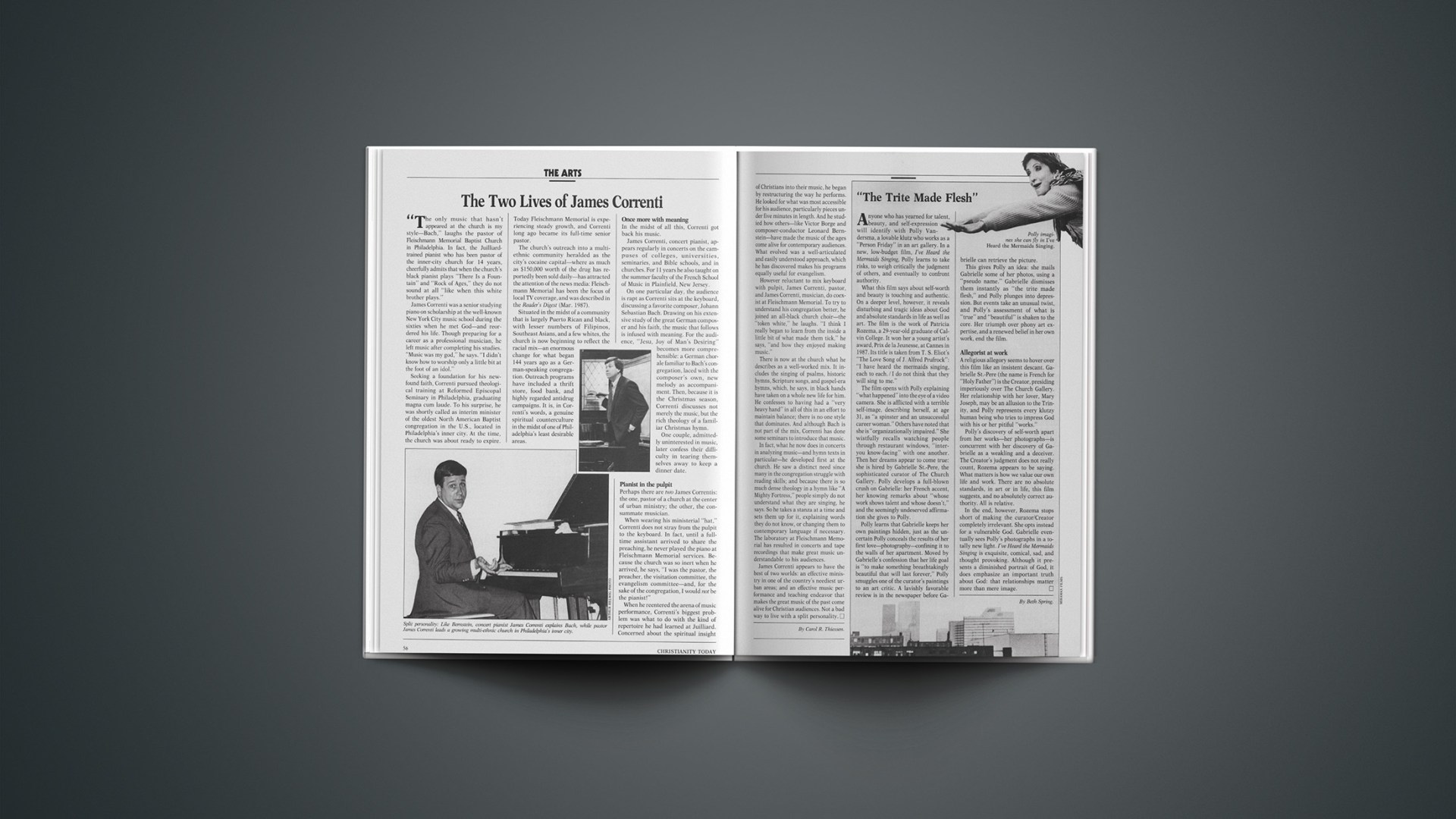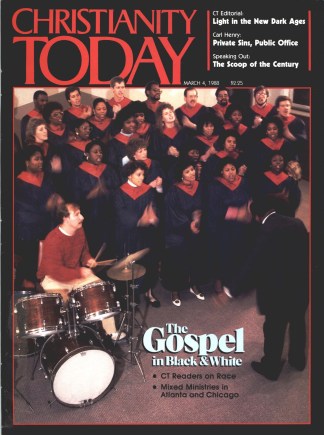Anyone who has yearned for talent, beauty, and self-expression will identify with Polly Vandersma, a lovable klutz who works as a “Person Friday” in an art gallery. In a new, low-budget film, I’ve Heard the Mermaids Singing, Polly learns to take risks, to weigh critically the judgment of others, and eventually to confront authority.
What this film says about self-worth and beauty is touching and authentic. On a deeper level, however, it reveals disturbing and tragic ideas about God and absolute standards in life as well as art. The film is the work of Patricia Rozema, a 29-year-old graduate of Calvin College. It won her a young artist’s award, Prix de la Jeunesse, at Cannes in 1987. Its title is taken from T. S. Eliot’s “The Love Song of J. Alfred Prufrock”: “I have heard the mermaids singing, each to each. / I do not think that they will sing to me.”
The film opens with Polly explaining “what happened” into the eye of a video camera. She is afflicted with a terrible self-image, describing herself, at age 31, as “a spinster and an unsuccessful career woman.” Others have noted that she is “organizationally impaired.” She wistfully recalls watching people through restaurant windows, “inter-you know-facing” with one another. Then her dreams appear to come true: she is hired by Gabrielle St.-Pere, the sophisticated curator of The Church Gallery. Polly develops a full-blown crush on Gabrielle: her French accent, her knowing remarks about “whose work shows talent and whose doesn’t,” and the seemingly undeserved affirmation she gives to Polly.
Polly learns that Gabrielle keeps her own paintings hidden, just as the uncertain Polly conceals the results of her first love—photography—confining it to the walls of her apartment. Moved by Gabrielle’s confession that her life goal is “to make something breathtakingly beautiful that will last forever,” Polly smuggles one of the curator’s paintings to an art critic. A lavishly favorable review is in the newspaper before Gabrielle can retrieve the picture.
This gives Polly an idea: she mails Gabrielle some of her photos, using a “pseudo name.” Gabrielle dismisses them instantly as “the trite made flesh,” and Polly plunges into depression. But events take an unusual twist, and Polly’s assessment of what is “true” and “beautiful” is shaken to the core. Her triumph over phony art expertise, and a renewed belief in her own work, end the film.
Allegorist At Work
A religious allegory seems to hover over this film like an insistent descant. Gabrielle St.-Pere (the name is French for “Holy Father”) is the Creator, presiding imperiously over The Church Gallery. Her relationship with her lover, Mary Joseph, may be an allusion to the Trinity, and Polly represents every klutzy human being who tries to impress God with his or her pitiful “works.”
Polly’s discovery of self-worth apart from her works—her photographs—is concurrent with her discovery of Gabrielle as a weakling and a deceiver. The Creator’s judgment does not really count, Rozema appears to be saying. What matters is how we value our own life and work. There are no absolute standards, in art or in life, this film suggests, and no absolutely correct authority. All is relative.
In the end, however, Rozema stops short of making the curator/Creator completely irrelevant. She opts instead for a vulnerable God. Gabrielle eventually sees Polly’s photographs in a totally new light. I’ve Heard the Mermaids Singing is exquisite, comical, sad, and thought provoking. Although it presents a diminished portrait of God, it does emphasize an important truth about God: that relationships matter more than mere image.
By Beth Spring.










